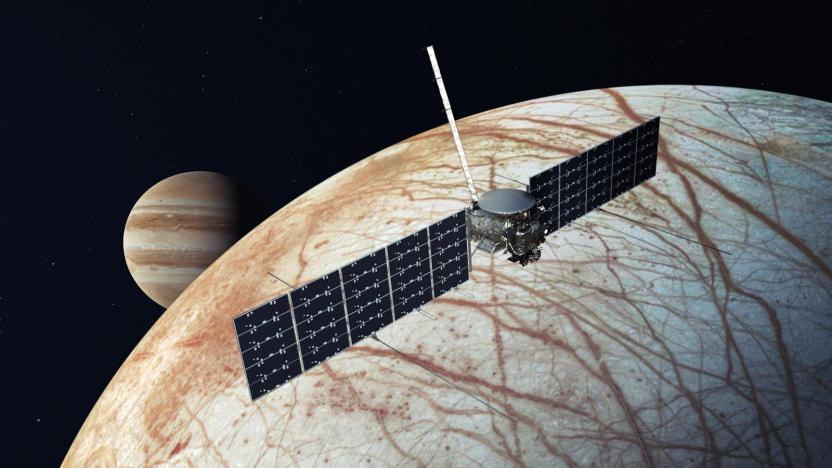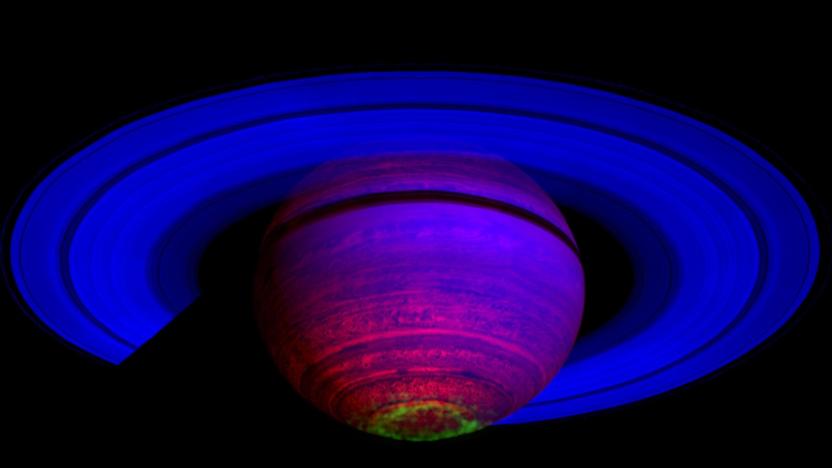Europa Clipper
Latest

SpaceX will launch NASA's Europa Clipper mission to Jupiter's moon
A SpaceX Falcon Heavy rocket will be launching NASA's long-awaited Europa Clipper mission.

NASA confirms mission to Jupiter's moon Europa
NASA has been talking for years about sending a probe to Europa, and now it's locking down those plans. The agency has confirmed the next phase of its Europa Clipper mission, which will send a spacecraft to the Jovian moon to determine if it could support life. The move allows progress toward finishing and testing a final design for the spacecraft. The administration is developing for a 2023 launch target to ensure a "cost-effective" process, but it's prepared to launch as late as 2025.

NASA is testing Jupiter moon probe's data-beaming antenna
What the Europa Clipper finds when it starts orbiting Jupiter's icy moon won't be of any use to us if it can't send data back to Earth. In order to beam back information from that far into the solar system, the Clipper will be equipped with a high-gain antenna (HGA) that the space agency is currently testing. NASA is evaluating a full-scale 10-foot-tall prototype of the HGA -- a directional antenna that allows precise targeting of radio signals -- at the Experimental Test Range (ETR) at NASA's Langley Research Center.

What's next for NASA as Cassini's mission comes to a close
After nearly two decades in space and 11 years studying Saturn (and its myriad moons), the Cassini spacecraft ended its mission at roughly 6:30 am Eastern on Friday when it slammed into the gas giant's suffocating atmosphere. It was an auspicious end for the $3.4 billion spacecraft, argues Curt Niebur, the program scientist for Cassini at NASA headquarters. "I find it exhilarating, myself," he said. "Instead of just crashing it into something and saying we're done, we're actually going after science questions that we never intended Cassini to answer. And we'll be able to address those. It's fantastic."


